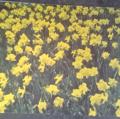Stephanie Jane recenzis Butterfly de Yusra Mardini
An inspirational memoir
5 steloj
I was almost in tears at the culmination of this inspirational memoir! Mardini's story of determination, survival, and the kindness of strangers is one that certainly does need to be shared widely around the world. I found the contrast between the cheering crowds for the Refugee Olympic Team in Rio and the hate-filled rhetoric for refugees generally in Britain to be a sad indictment of my country. Two years after the Rio Olympics, there is still plenty money available to send yet more bombs to Syria, but apparently very little to support and assist the resulting flood of refugees.
Butterfly is a very engaging and readable biography. Mardini and Le Blond make a great writing team and I found myself caught up this story from the first few pages. From living a relatively affluent life in Syria, promising young athlete Yusra Mardini slowly sees her opportunities and dreams eroded by …
I was almost in tears at the culmination of this inspirational memoir! Mardini's story of determination, survival, and the kindness of strangers is one that certainly does need to be shared widely around the world. I found the contrast between the cheering crowds for the Refugee Olympic Team in Rio and the hate-filled rhetoric for refugees generally in Britain to be a sad indictment of my country. Two years after the Rio Olympics, there is still plenty money available to send yet more bombs to Syria, but apparently very little to support and assist the resulting flood of refugees.
Butterfly is a very engaging and readable biography. Mardini and Le Blond make a great writing team and I found myself caught up this story from the first few pages. From living a relatively affluent life in Syria, promising young athlete Yusra Mardini slowly sees her opportunities and dreams eroded by the ever-approaching civil war in Syria. Her family is forced to repeatedly move house to escape the fighting until, eventually, there really isn't anywhere left to go. Simple actions like swimming in a pool or walking to the shops are potentially fatal. Mardini puts across well the stress of living under such conditions. It is intolerable and terrifying, but yet becomes 'normal' frighteningly swiftly. I wondered how traumatised people must be in order to deal so calmly with such intense danger on a daily basis.
I was amazed by the perceptions of Syrian life that Mardini encounters and the assumptions a proportion of Europeans have of refugees and their lives prior to war in their homelands. Like Clemantyne Wamariya in The Girl Who Smiled Beads, Mardini discusses the charity she receives and how difficult it is for her to reconcile the life she had before with now needing to rely on the kindness of strangers for absolutely everything. She is aware that knowledge of her athletic prowess enables her to be fast tracked through administrative hoops with which most refugees must struggle and this is an interesting point to consider too. Many refugees are highly skilled and have talents which would benefit European society - they couldn't financially afford to make the journey otherwise - so, by veiling their potential behind that 'refugee' catch-all, are we Westerners actually setting ourselves up to lose out in the long term?
As in The Baghdad Clock by Shadad Al Rawi, Butterfly gives readers an excellent insight into why these refugees have left everything in order to start again elsewhere. It is sobering to understand just how much the Mardini family endured before they felt they must flee, and also how easily a nation can fracture into all-consuming war especially when the rest of the world simply stands by and watches.

